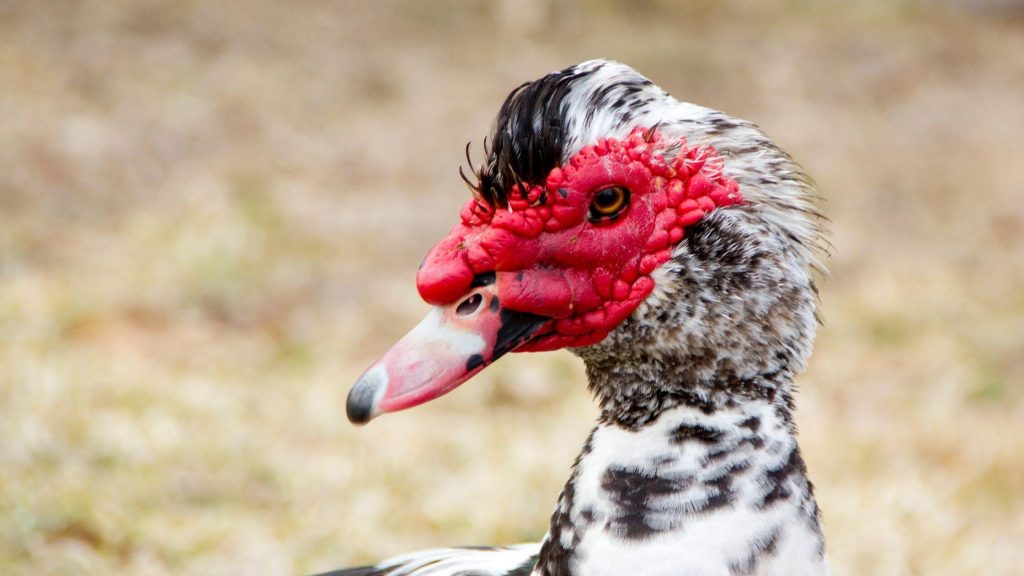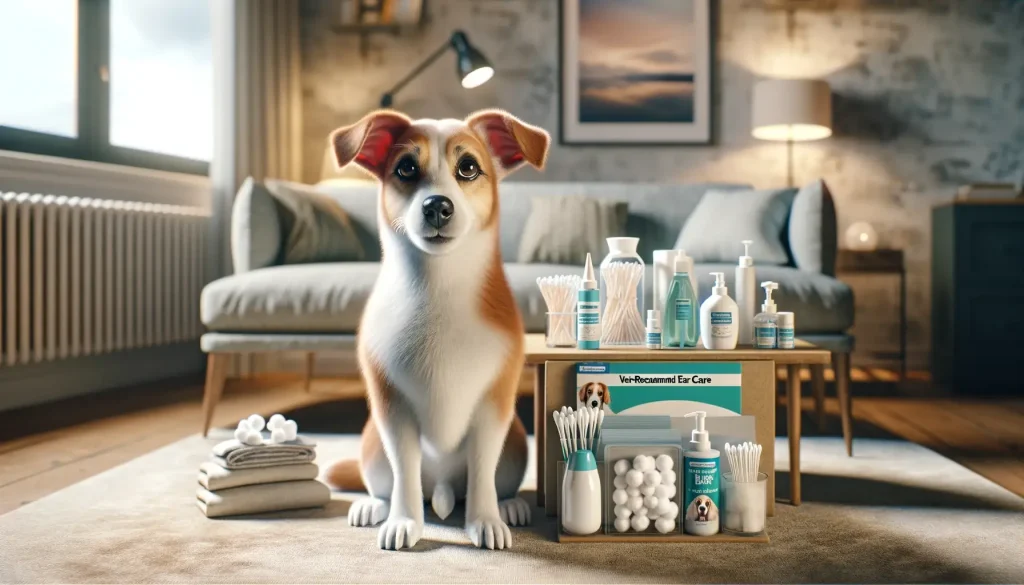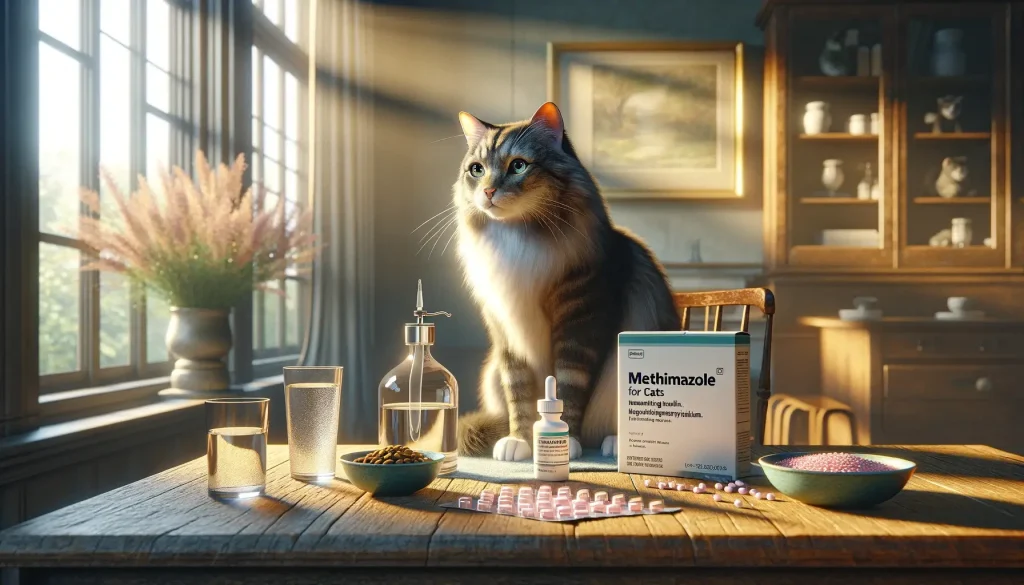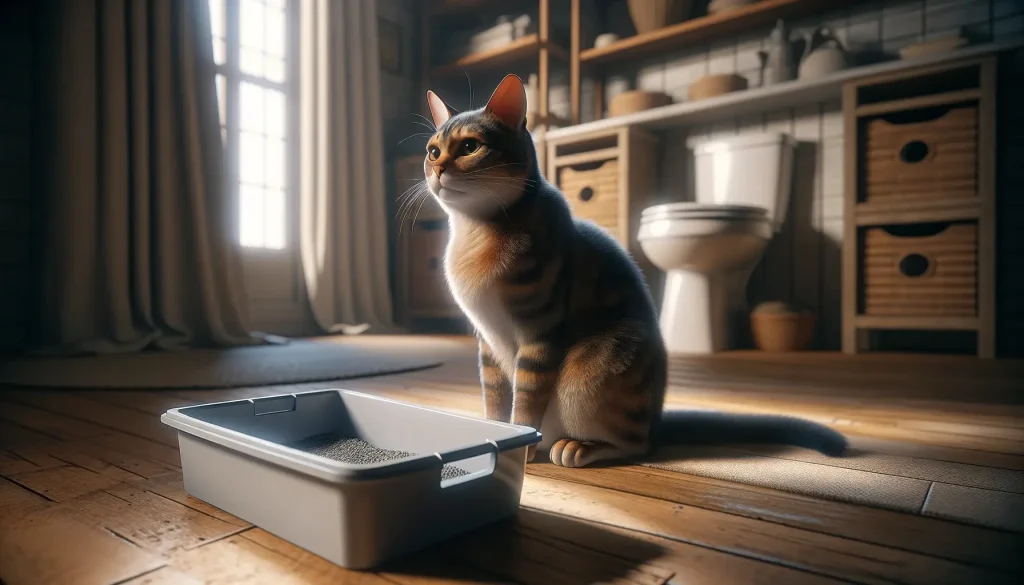
Keeping pets is an age-old human tradition, enriching our lives in countless ways. Among the usual cats and dogs, some prefer the road less traveled, choosing companions of a more unusual nature. Enter the Muscovy duck – a creature that might evoke an initial reaction of disbelief with its unique appearance. But what if I told you that beneath the exterior lies a pet with remarkable qualities? The Muscovy duck isn’t your standard pet choice, and it’s surrounded by fascinating facts that challenge common perceptions. For instance, unlike other ducks, Muscovies aren’t descended from mallards, setting them apart right from their genetic roots. Plus, their serene demeanor, characterized by soft trills and huffs instead of the typical quack, makes them unusually quiet companions. Originating from South America and thriving in diverse environments, they’ve carved a niche for themselves in various habitats around the globe. This article isn’t just a guide; it’s a doorway to seeing the Muscovy duck in a new light, answering the pivotal question: Why might the Muscovy duck be the unconventional pet you never knew you needed?
Muscovy Ducks as Your Next Pet
Muscovy ducks are not what pops into mind for most when considering pets. Yet, they offer qualities that might surprise many. Initially, let’s address their legality as pets. In many places, Muscovy ducks can be legally owned, but it’s crucial to check local regulations as this can vary. As for their nature, these ducks are far from your typical noisy fowl. They are known for being quiet, making soft trill sounds or “huff huff” noises, especially males. This characteristic makes them more neighbor-friendly than one might expect.
Are they dangerous? Far from it, Muscovy ducks are generally gentle and can become quite tame, often forming strong bonds with their human caretakers. This, coupled with their unique appearance, especially the distinctive caruncles on their faces, makes them a fascinating addition to any home willing to accommodate their needs.
Regarding the cost, prices can range anywhere from around $5 to $20 or more per duck. Ducklings are often cheaper than adult ducks, and prices may be higher for ducks that are bred for specific purposes, such as show quality or particular color variations. Ongoing costs are relatively modest, consisting mainly of feeding and general care. As pets, they are relatively economical to maintain.
Muscovy ducks boast a significant lifespan compared to other pets, living up to 7 to 8 years or more with proper care. This grants owners ample time to develop a deep, rewarding relationship with their feathered friend. Our friend O’Malley from Ducks and Clucks lived to be 9 years old!
While Muscovy ducks might initially seem an unconventional choice for a pet, their gentle demeanor, ease of care, and longevity make them a compelling option for those seeking a less traditional companion animal.
Given the rich information from the anecdote about Muscovy ducks and O’Malley’s story, let’s delve into the fascinating physical attributes and behaviors of these ducks, emphasizing their unique caruncles.
The Unique Beauty of Muscovy Ducks
Meet O’Malley, the Muscovy duck star from Ducks and Clucks. O’Malley, like many Muscovy ducks, showcases a feature that might initially draw mixed reactions: caruncles. Commonly found in the Muscovy duck species, caruncles are the distinctive red fleshy parts around their faces, often mistaken for skin conditions by those unfamiliar with them. However, these caruncles serve an essential purpose for the ducks, helping them to stay clean as they dabble in mud and water.
Caruncles start to form as Muscovy ducks mature and can continue to grow throughout their lives. They are not just for show; these features offer an additional layer of charm to these ducks. For instance, caruncles assist in the ducks’ grooming process. An oil gland located within the caruncle secretes oil, which Muscovy ducks use to preen and waterproof their feathers. This is crucial for their well-being, as it ensures that they stay dry and buoyant while swimming.
Moreover, Muscovy ducks are unique among ducks as they do not descend from mallards and do not communicate through quacks. Instead, females make a soft trill sound, and males produce a huff huff sound. Apart from being quieter than other ducks, this vocal distinction further sets them apart as fascinating pets.
Originally from South America, these tree-perching ducks have adapted to various environments. Quite interestingly, large feral populations exist in the United States. Not initially bred for meat or eggs in every context, many like us choose to rescue these ducks, aligning with our values of care and compassion.
O’Malley’s development from a “ugly” duckling to a duck adorned with fully formed caruncles is a testament to the beauty inherent in Muscovy ducks. It challenges our perceptions, urging us to look beyond initial impressions to the intrinsic beauty and utility of these creatures.
A unique adaptation among ducks is the nictitating membrane, akin to a second eyelid, which allows them to see while foraging underwater. This feature, coupled with the unique closing mechanism of their eyes, represents the evolutionary marvels present in these birds.
Through understanding and observing Muscovy ducks like O’Malley, we learn not just about their distinctive features but also about the depth of their personalities and the roles they can fill in our lives as cherished pets. O’Malley’s story is a heartwarming example of the bonds that can be formed and the joy these ducks can bring into our homes.
Fun Facts About Muscovy Ducks
Did you know that Muscovy ducks are one of the few breeds that don’t quack? Instead, males make a “huff huff” sound, and females emit a soft trill. This unique vocal trait makes them quieter than other ducks, enhancing their appeal as pets for those who prefer a serene environment. Here’s a table of more fun facts to expand your knowledge about these fascinating creatures:
| Fact | Description |
|---|---|
| Origin | Muscovy ducks originate from South America. |
| Not From Mallards | They are the only ducks not descended from mallards. |
| Caruncles | Caruncles help keep their feathers clean and grow throughout their lives. |
| Vocal Sounds | Males make “huff huff” sounds while females trill. |
| Adaptability | Muscovy ducks have adapted to live in various environments worldwide. |
| Quiet Nature | They are generally quieter than other duck breeds. |
This just scratches the surface of what makes Muscovy ducks such extraordinary animals. Whether it’s the silent whispers of their unique calls or the curious look of their caruncles, there’s no denying the distinct charm they bring into our lives. Their ability to adapt, coupled with their distinct features and behaviors, makes them not just pets but captivating companions with stories of their own.
Muscovy Duck Feathers
At first glance, Muscovy ducks might not win a beauty contest, especially with reactions like “Eeww! Ugly!” But, dive deeper, and you’ll discover their feathers and skin characteristics are fascinating. One compelling feature is the caruncles – the red, fleshy parts around their face. Although initially perceived as peculiar, these play a significant role in their hygiene, helping them to stay clean.
| Feather Fact | Insight |
|---|---|
| Color Variation | Feathers can range from all black to white, and even blue-green hues. |
| Feather Oil | The caruncle houses an oil gland for feather preening. |
| Waterproofing | Preening distributes oil, rendering feathers waterproof. |
| Feather Texture | Their feathers are denser and softer than those of other ducks. |
| Caruncles | Help in keeping feathers clean, growing more pronounced with age. |
| Molt Patterns | Muscovy ducks have distinct molting patterns, affecting their appearance seasonally. |
Understanding the purpose and beauty of Muscovy ducks’ feathers and skin flips the script on first impressions. From the protective caruncles to the sophisticated oil preening mechanism, these features illustrate the remarkable adaptability and sophistication of Muscovy ducks. Their uniqueness extends beyond surface level, highlighting a natural elegance that grows on you.
The Pros and Cons of Raising Muscovy Ducks
Now, let’s dive into the practical aspects of having Muscovy ducks as pets. They’re unique, yes, but are they the right fit for your home? Here’s my take on the benefits and challenges you might face.
| Pros | Cons |
|---|---|
| Quiet Nature Muscovies are quieter than other ducks; males make a soft “huff huff” and females a gentle trill. | Space Requirements They need a decent amount of space, preferably with access to a pond or a sizable water feature. |
| Pest Control They love to eat bugs, aiding in natural pest control around your property. | Local Regulations Some areas might have restrictions or require permits to keep Muscovy ducks. |
| Companionship They can bond closely with their human caretakers, offering unique companionship. | Maintenance While not overly demanding, they do require regular care and monitoring to ensure their health and well-being. |
| Eggs For those interested in farm-fresh eggs, Muscovy ducks can be a great source. | Predators They can attract predators, so you need to ensure their living area is secure, especially at night. |
In my opinion, while the cons are certainly something to consider, the pros of having Muscovy ducks far outweigh them. Their quiet nature and pest control abilities make them an excellent addition to a spacious backyard or farm. Of course, it’s essential to ensure that you’re prepared for the commitment and have the necessary space and resources to keep them happy and healthy.
Ensuring Your Muscovy Duck’s Health: Common Concerns and Tips
Caring for Muscovy ducks inevitably involves being aware of their health needs. Muscovies are hardy, but like all pets, they have their vulnerabilities. Let’s examine the common health issues these ducks face and how you can preemptively tackle them to ensure their well-being.
| Health Issue | Prevention/Treatment |
|---|---|
| Bumblefoot | May be caused by abrasive surfaces. Regularly inspect their feet, and provide clean, soft landing zones. |
| Parasites | Keep their environment clean. Regular deworming and pest control are crucial. |
| Nutritional Deficiencies | Ensure they have a balanced diet tailored to Muscovy needs. Supplement vitamins as needed. |
| Respiratory Issues | Maintain good air quality, and avoid overcrowding. Watch out for symptoms like sneezing or wheezing. |
Regular check-ups with a vet experienced in poultry or specifically Muscovy ducks can catch issues early on. Remember, preventative care is always better than the cure when it comes to pet health.
In addition to the health tips above, it’s essential to know your duck’s normal behavior and appearance. Changes can often indicate something is amiss. For example, if your normally vibrant and active Muscovy becomes lethargic or stops eating, these could be signs of illness. Similarly, monitoring their droppings for any drastic changes in consistency or color isn’t glamorous but is key in catching health issues early.
Creating a safe, clean, and enriching environment minimizes stress and common health problems, allowing your Muscovy duck to thrive. With the proper care, these ducks can be a joyful and healthy addition to your family for years to come.
The Pet You Never Knew You Wanted!
The Muscovy duck, with its unique charm and low-maintenance lifestyle, could be the unconventional pet you never knew you needed. Unlike typical household pets, these ducks offer a serene presence, fascinating to watch with their quirky behaviors. They are remarkably hardy and adaptable, thriving in various environments with minimal fuss. Muscovies are known for being quieter than other duck breeds, making them suitable for both rural and suburban settings. Their foraging habits can be a natural pest control solution, as they enjoy snacking on insects. Plus, their affectionate nature and tendency to bond with their caretakers can bring a surprising level of companionship. Owning a Muscovy duck is not just about having a pet; it’s about embracing a unique and enriching experience that adds a touch of the wild to your everyday life.
Beginner Guide to Raising Quail at Home
What are the Signs of a Dog Concussion?
What Causes Your Dog’s Ears to Smell Bad?
When your dog’s ears start to emit an unpleasant odor, it might leave you puzzled…
Methimazole Treatment for Cat Hyperthyroidism
Methimazole plays a crucial role in managing feline hyperthyroidism, a condition marked by an overactive…
Got Hummingbirds in your Backyard? Here’s How to Care for Them.
Why Does Your Cat Pee Outside the Litter Box?
Cat’s Litter Box Issues It’s not uncommon for cat owners to face the frustrating dilemma…




